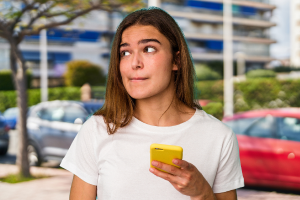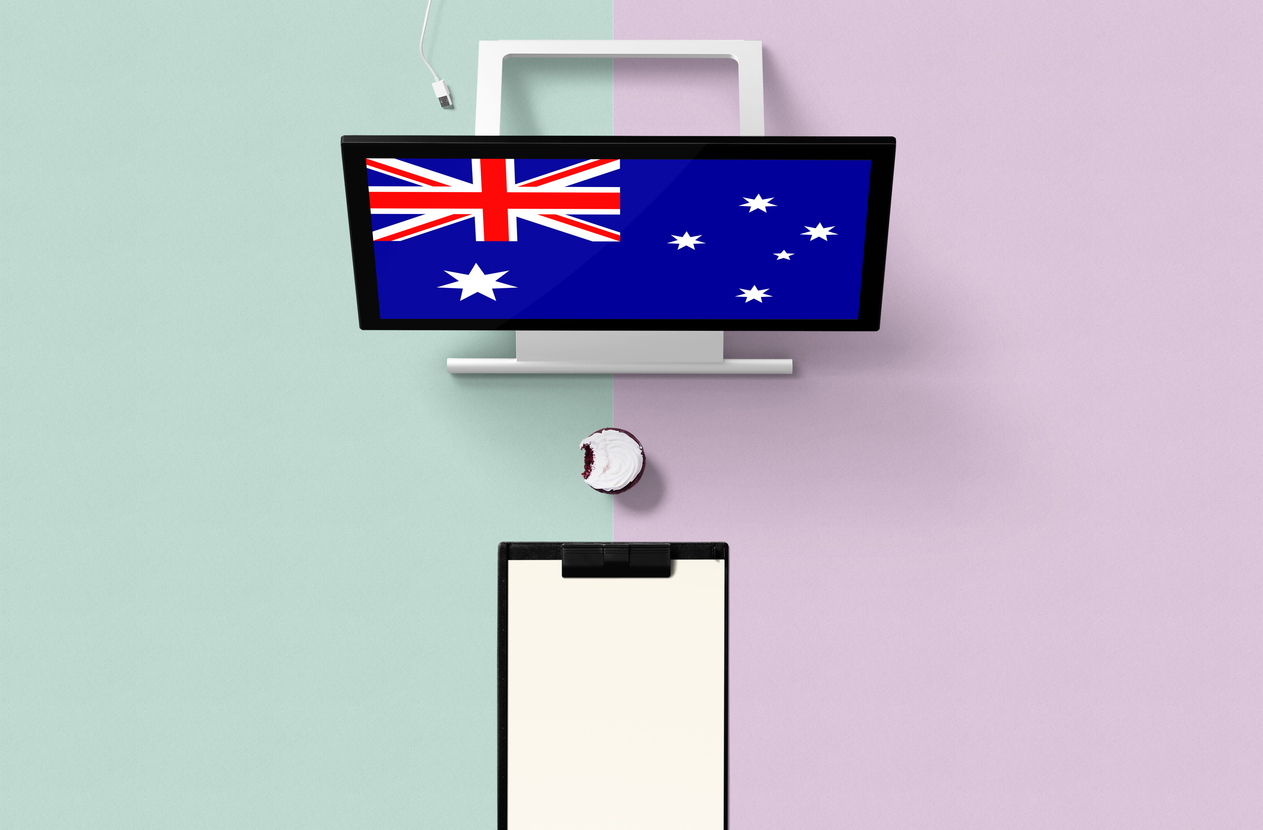
It’s
important
to
note
that
the
only
time
your
communications
are
encrypted
is
when
they’re
in
transit.
They’re
otherwise
plain
as
day
to
see
or
hear.
Thus,
anyone
who
can
open
your
phone
can
tap
the
app
and
access
them
(provided
you
don’t
lock
your
phone
or
the
WhatsApp
app
itself).
And
like
any
other
message
or
photo
that
you
send
over
the
internet,
nothing
prevents
the
recipient
from
sharing
your
message
with
others
by
taking
a
screenshot
or
simply
forwarding
a
photo
to
someone
else.
With
that,
no
form
of
messaging
is
100%
private.
Not
WhatsApp.
Not
other
messaging
apps
like
it,
with
or
without
encryption.
If
you
want
to
keep
something
entirely
private,
whether
it’s
a
photo
or
a
message,
don’t
send
it
over
the
internet.
Does
WhatsApp
store
your
messages?
Generally
no,
yet
understanding
the
specifics
calls
for
diving
into
their
privacy
policy.
Once
again,
WhatsApp
does
view
your
messages
or
listen
to
your
calls.
It
only
temporarily
stores
messages
on
their
servers
in
the
case
of
a
few
exceptions.
As
of
April
2023,
its
policy
states:
We
do
not
retain
your
messages
in
the
ordinary
course
of
providing
our
Services
to
you.
Instead,
your
messages
are
stored
on
your
device
and
not
typically
stored
on
our
servers.
Once
your
messages
are
delivered,
they
are
deleted
from
our
servers.
In
some
cases,
undelivered
messages
are
kept
in
encrypted
form
on
WhatsApp’s
servers
for
up
to
30
days
or
until
the
message
is
delivered.
Also,
WhatsApp
may
store
media
that
you
forward
in
a
message
temporarily
in
encrypted
form
on
their
servers
to
aid
in
more
efficient
delivery
of
additional
forwards.
What
info
does
WhatsApp
share
with
Meta
(Facebook
and
Instagram)?
Facebook
(now
known
as
Meta)
purchased
WhatsApp
in
2014.
Today,
as
one
of
the
companies
that
falls
under
the
Meta
umbrella,
WhatsApp
“[R]eceives
information
from,
and
shares
information
with,
the
other
Meta
Companies.”
Per
WhatsApp’s
privacy
policy:
WhatsApp
must
receive
or
collect
some
information
to
operate,
provide,
improve,
understand,
customize,
support,
and
market
our
Services,
including
when
you
install,
access,
or
use
our
Services.
Also
per
its
privacy
policy,
WhatsApp
(and
Meta)
uses
that
information:
We
use
information
we
have
(subject
to
choices
you
make
and
applicable
law)
to
operate,
provide,
improve,
understand,
customize,
support,
and
market
our
Services.
What
does
WhatsApp
collect
specifically?
That
may
include
location
information
if
you’re
using
location-based
services
in
the
app.
It
may
also
include
location
information
even
if
you
aren’t
using
those
services.
In
addition
to
location
information,
it
may
also
include
the
following:
-
Hardware
model
and
operating
system
information. -
App
version
and
browser
information. -
Mobile
network
and
connection
information
(including
phone
number,
mobile
operator,
or
ISP). -
Language
and
time
zone. -
IP
address
and
device
operations
information. -
Identifiers,
including
identifiers
unique
to
“Meta
Company
Products”
associated
with
the
same
device
or
account. -
Usage
and
log
information
about
your
activity,
including
how
you
use
their
services,
your
services
settings,
how
you
interact
with
others
using
those
services,
and
the
time,
frequency,
and
duration
of
your
activities
and
interactions.
Why
does
WhatsApp
collect
this
information?
The
company
may
use
it
for
the
“safety,
security,
and
integrity”
of
the
app
experience.
It
may
use
that
information
for
marketing
purposes
as
well.
(Think
targeted
ads.)
Likewise,
WhatsApp
may
share
this
information
with
select
third
parties
for
the
same
purposes.
So
while
WhatsApp
may
not
know
what’s
in
your
messages,
it
potentially
knows
a
great
deal
about
you—like
where
you
are,
how
you’re
using
their
app,
and
for
how
long.
And
if
you
have
a
Facebook
account,
that
may
extend
to
your
interests,
what
ads
you’ve
clicked
on,
which
ones
led
to
purchase,
along
with
all
the
other
information
that
Facebook
knows
about
you.
This
is
the
“value
exchange”
that
we
talk
about
in
our
blogs
so
often,
where
you
gain
the
value
of
using
a
free
app
in
exchange
for
something
else,
typically
personal
information
that
is
used
for
marketing
purposes.
By
agreeing
to
the
terms
of
the
user
agreement
you
clicked
when
you
first
installed
the
app,
you
became
a
legally
binding
participant
in
this
exchange.
A
few
steps
for
making
your
time
on
WhatsApp
more
private
and
secure.
Protect
your
privacy
with
a
PIN.
For
starters,
you
can
keep
a
thief
or
snoop
from
getting
into
your
phone
altogether
by
setting
a
screen
lock
with
a
PIN,
facial
recognition,
or
gesture
lock.
Surprisingly,
from
our
recent
global
research
found
that
only
56%
of
adults
said
that
they
protect
their
smartphone
with
some
form
of
a
screen
lock.
If
you
find
yourself
among
them,
consider
making
a
change.
Locking
your
phone
offers
terrific
peace
of
mind
in
the
event
your
phone
gets
lost
or
stolen.
Additionally,
WhatsApp
also
allows
you
to
create
a
PIN
for
accessing
the
app
itself.
You
can
find
this
setting
in
Settings
>
Account
>
Two-Step
verification.
With
both
in
place,
you
can
effectively
double-lock
WhatsApp.
As
with
any
PIN,
never
give
it
out
to
anyone.
Sharing
it
could
compromise
your
security.
Enable
security
notifications.
WhatsApp
has
a
setting
that
sends
a
notification
in
the
event
your
security
PIN
code
changes.
If
you
have
the
app
installed
on
multiple
devices,
you
will
need
to
enable
it
on
those
devices
as
well
for
it
to
work.
You
can
enable
this
setting
in
Settings
>
Account
>
Security
Notifications.
Lock
down
your
privacy
settings.
A
quick
trip
to
Settings
>
Privacy
can
limit
what
other
WhatsApp
users
see
and
know
about
you.
In
that
menu,
you’ll
see
that
you
have
several
privacy
options:
-
Last
Seen
&
Online -
Profile
Photo -
About -
Groups -
Status
Setting
these
to
“My
Contacts”
will
prevent
the
broader
WhatsApp
user
base
from
seeing
this
information
about
you.
That
includes
potential
spammers
and
scammers,
thus
taking
this
step
can
make
you
more
private.
So
just
in
the
same
way
we
recommend
that
you
set
your
social
media
accounts
to
“friends
and
family
only,”
we
recommend
doing
the
same
here.
Turn
off
location
services
for
WhatsApp.
Although
WhatsApp
can
determine
your
location
by
other
means,
you
can
limit
it
from
locating
you
with
pinpoint
accuracy
by
disabling
location
services
for
the
app.
On
an
iOS
device,
you
can
do
that
by
going
into
Settings
>
Privacy
&
Security
>
Location
Services
and
then
scrolling
down
until
you
find
WhatsApp.
From
there,
you
can
disable
its
permissions
with
a
tap.
For
Android,
on
your
phone’s
home
screen,
find
the
WhatsApp
icon,
then
touch
and
hold
it.
Tap
“App
Info,”
then
“Permissions”
then
“Location.”
Finally,
select
“Deny.”
Don’t
talk
to
strangers—and
don’t
click
their
links.
As
it
is
on
so
many
platforms
today,
scammers
abound.
WhatsApp
is
no
different,
where
scammers
spin
up
bogus
accounts
and
attempt
to
start
conversations
with
other
users.
The
way
they
go
about
it
varies.
They
may
try
to
kindle
a
romance
scam,
they
may
masquerade
as
a
business
representative,
or
even
pose
as
a
tax
collector
or
other
government
official.
The
aim
is
always
the
same,
though.
They
want
to
steal
your
personal
information
or
trick
you
into
forking
over
your
money.
Don’t
take
chances.
Don’t
talk
to
strangers.
Other
scammers
will
send
messages
with
malicious
links.
Just
as
you
shouldn’t
follow
links
or
open
files
from
strangers
in
other
apps,
don’t
do
open
them
on
WhatsApp
either.
Those
links
are
simply
gateways
to
scam
sites
and
malware.
Do
you
back
up
your
WhatsApp
chats?
You’ll
want
to
know
this.
If
you
back
up
your
WhatsApp
message
histories
in
the
cloud
with
Apple
or
Google,
they
are
not
encrypted.
Once
again,
you
can
encrypt
them
while
they
are
in
transit
by
using
“End-to-End
Encrypted
Backup,”
but
the
histories
themselves
are
not
encrypted
when
they
are
stored
in
the
cloud.
For
those
who
are
particularly
privacy-conscious,
the
idea
of
their
messages,
plus
any
attached
photos
and
messages,
being
stored
without
encryption
may
give
them
pause.
Even
if
that
is
in
a
relatively
secure
cloud
service
such
as
Apple’s
or
Google’s.
Yet
the
risk
of
data
breaches
remains,
as
does
the
risk
of
a
bad
actor
gaining
access
to
one’s
cloud
account,
such
as
through
a
stolen
password.
So,
for
an
increased
degree
of
privacy
and
security,
you
may
want
to
consider
disabling
cloud
backup
for
your
WhatsApp
messages.
Protect
your
phone
too.
Comprehensive
online
protection
software
can
protect
your
phone
in
the
same
ways
that
it
protects
your
laptops
and
computers.
Installing
it
can
protect
your
privacy,
keep
you
safe
from
attacks
on
public
Wi-Fi,
and
automatically
block
unsafe
websites
and
links
(like
the
ones
that
might
come
to
you
in
a
spammy
WhatsApp
message),
just
to
name
a
few
things
it
can
do.
In
all,
given
how
much
of
our
lives
center
around
our
phone—shopping,
finances,
splitting
a
dinner
bill
with
friends,
and
so
on,
protecting
your
phone
and
the
things
you
do
on
it
makes
sense.
Know
how
to
remotely
lock
or
erase
your
phone.
There’s
a
good
chance
you’ve
experienced
that
moment
of
panic—the
moment
when
you
think
you’ve
really
lost
your
phone,
followed
by
the
deep
relief
when
you
finally
find
it.
But
what
happens
if
your
phone
ends
up
getting
lost
or
stolen?
A
combination
of
device
tracking,
device
locking,
and
remote
erasing
can
help
protect
your
phone
and
the
data
on
it.
Different
device
manufacturers
have
different
ways
of
going
about
it,
but
the
result
is
the
same—you
can
you’re
your
phone,
prevent
others
from
using
it,
and
even
erase
it
if
you’re
truly
worried
that
it’s
in
the
wrong
hands
or
simply
gone
for
good.
Apple
provides
iOS
users
with
a
step-by-step
guide,
and Google
offers
up
a
guide
for
Android
users
as
well.
WhatsApp:
Pretty
private,
to
a
point.
WhatsApp
is
indeed
quite
private
when
it
comes
to
messages
and
voice
communications
when
they
are
transmitted
between
people—yet
not
so
much
when
it
comes
to
other
data
that
the
app
collects
while
you’re
using
it.
While
much
of
that
data
collection
occurs
thanks
to
the
terms
of
its
user
agreement
and
privacy
policy,
you
can
take
a
few
steps
to
limit
it
to
a
degree.
You
can
take
yet
more
steps
that
can
make
the
time
you
spend
on
WhatsApp
more
secure
as
well.
As
with
any
free
app,
using
it
involves
some
sort
of
value
exchange.
Understanding
what
information
the
app
does
and
does
not
collect
can
help
you
determine
if
that
value
exchange
is
right
for
you.





